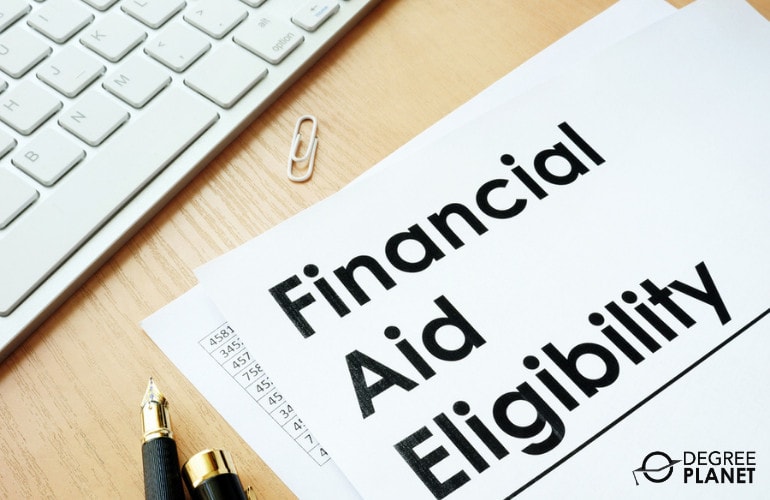What can you do with a masters in data analytics? You may have a variety of career options, depending on your skills and interests.

Whether you’re thinking about a career in business, finance, technology, education, healthcare, or even government, a degree in data analytics can open doors in many fields.
Editorial Listing ShortCode:
A masters-level education can help qualify you for specialized, high-paying jobs within these fields.
What Can You Do with a Masters in Data Analytics?

Also known by names like “data science,” “business analytics,” and “data informatics,” data analytics is a field that deals with information. You might find, organize, catalogue, track, and model data for a variety of purposes.
There are jobs for data analysts in just about every field. All types of businesses need people to sort through the data that they generate and collect. There are also data analytics careers beyond the role of data analyst. For example, if you’re good at organizational structure, you might become a network architect or database administrator.
If you want a job with a bit of creative flair, you may become a software engineer, web developer, or information security specialist. Other career options can depend on your education. As a master’s degree holder, you’ll likely have higher qualifications than other job applicants. Certain careers may require additional, specific credentials, though.
Editorial Listing ShortCode:
For example, a highly technical job, such as a computer research scientist, might require a specialized degree concentration or additional certification after you graduate.
Data analytics can also cross over into other, similar fields, such as business intelligence. Some colleges will only offer one or the other, or their masters programs might require you to study a blend of subjects related to data. Regardless of your program, a master’s in data analytics can be quite lucrative.
According to the US Bureau of Labor Statistics, the average salary for a computer and information research scientist is $126,830 per year, and the top earners in the field can take home as much as $194,430 per year.
5 Things You Can Do with a Masters in Data Analytics

Data analytics is a broad area of study. Before you start looking at data analytics graduate programs, you may want to explore the different fields and careers where your degree can take you.
The following are just a few career possibilities with a traditional or online masters degree in data analytics.
1. Information Scientist

Also known as a data scientist, this is a job where you may collect, track, organize, and process information from various sources.
Depending on your skills, you might be in charge of everything from singular databases to global computer networks. You might invent new tools and technologies. You might design experiments for existing software. You might build data models for clients, businesses, and agencies.
Information scientists are highly skilled computer specialists, so the sky is the limit in terms of what they can do.
2. Database Administrator

A database administrator is someone who creates and manages databases. This career might be a good fit for you if you have a knack for computers, a strong eye for detail, and the ability to troubleshoot problems as they arise.
Database administrators are usually expected to wear multiple hats as part of their job duties. They can be archivists, software developers, network architects, IT specialists, and cybersecurity experts all in one.
3. Data Architect

Architects are responsible for building things. Instead of donning a hardhat, data architects build digital systems.
These digital systems can include everything from local area networks (LANs) to wide area networks (WANs) as well as databases, operating systems, communication systems, and other types of networks.
Data architects are sometimes known as network architects or computer network architects, so you may want to keep an eye out for these descriptors when researching colleges and degree programs.
4. Big Data Engineer

“Big data” refers to large volumes of data generated by businesses on a day-to-day basis. It’s an entire specialty in data analytics because it takes unique tools and technologies to manage.
Instead of working with individual computer systems, for example, you might need to develop data applications that are capable of data mining or web scraping on a mass scale.
Editorial Listing ShortCode:
If you enjoy numbers, trends, and statistics and aren’t afraid of large quantities of raw data, you might consider pursuing a masters in big data analytics.
5. Information Security Manager

You don’t have to major in cybersecurity to work in information security management. Businesses are always looking for safe, secure ways to store and transfer their data, so there are many data analytics jobs that revolve around the safekeeping of digital files.
You might work in backups, data retrieval, safety protocols, anti-hacking measures, and more. With a master’s degree, you can also aim for jobs with “manager” and “supervisor” in the title rather than working on the ground floor of cybersecurity.
Data Analytics Careers & Salaries

According to the Bureau of Labor Statistics, computer and information research scientists earn an average of $126,830 per year. This is only one of many careers, though, where you can leverage a masters degree in data analytics.
| Careers | Annual Median Salaries |
| Computer and Information Research Scientist | $126,830 |
| Computer Network Architect | $116,780 |
| Software Developer | $110,140 |
| Information Security Analyst | $103,590 |
| Database Administrator | $98,860 |
| Computer Systems Analyst | $93,730 |
| Computer Programmer | $89,190 |
| Operations Research Analyst | $86,200 |
| Market Research Analyst | $65,810 |
| Computer Support Specialist | $55,510 |
One thing to note about these numbers is that they’re averages. The full salary range for a job might be much more fluid.
For example, while the average salary of a computer scientist is $126,830 per year, the top earners in the field can take home as much as $194,430 per year while the lowest earners might only earn $72,210 per year (Bureau of Labor Statistics).
Either way, the average salaries for these occupations are on the higher end which makes a masters degree in business analytics worth it.
Is Financial Aid Available?

There are many types of financial aid available for students who qualify. You can get started by filling out the Free Application for Federal Student Aid (FAFSA). You may be familiar with it from your undergrad days, but it may help you pay for a graduate degree as well.
You may want to look into the Direct PLUS Loan for Graduate and Professional Students. Another financial aid option is scholarships. A limited number are meant specifically for data analytics students, including the Lilly Endowment Scholarship for Data Science and the Daniel Larose Scholarship for Data Mining Excellence.
Editorial Listing ShortCode:
You can also search for STEM scholarships that will accept students with a data analytics background. Last but not least, if you’re already employed, you may ask your boss about tuition assistance or tuition reimbursement. Some businesses are willing to pay for their employees to obtain new skills as part of the job.
How Much Money Can You Make with a Masters in Data Analytics?
A degree in data analytics can lead to six-figure paydays, especially if you earn a master’s degree to take on a specialized or highly technical job. High-paying careers include data scientist, information security analyst, and big data engineer.
You may also increase your earning potential by concentrating your work in a specific area and climbing the corporate ladder. For example, a senior database administrator will earn more than an entry-level database administrator.
What Is a MS in Data Analytics?

There are several potential paths to a masters in analytics. The most straightforward is a MS or Master of Science in Data Analytics. You might also find the same degree listed as data science, applied data analytics, data intelligence, or business intelligence. For example, a university may offer an online master’s in data science program.
Another option is earning a related degree with a concentration in data analytics. For example, you might earn a MS in Computer Science or a MS in Computer Science with an emphasis in data analytics. A final possibility is a Master of Professional Studies in Data Analytics or a related field.
What Is a Masters in Data Analytics Good For?

A degree in data analytics can prepare you for work in a variety of fields. Every industry needs specialists to handle the information that they generate.
Whether it’s tracking profits, analyzing consumer trends, protecting sensitive files, or managing customer and client accounts, people who know how to work with data are highly in demand.
According to the US Bureau of Labor Statistics, occupational growth rates for data-based jobs can reach as high as 31%, which is much faster than the 4% average for all occupations.
What Do You Learn in Data Analytics?

Not surprisingly, the core classes of a data analytics degree will revolve around data. Subjects can include data mining, data modeling, data structures, and data visualization.
Other courses are usually related to computer science. You might take everything from programming languages and operations systems to machine learning and statistical analysis.
If you’re specializing, you’ll also take classes related to your concentration. These can include information security, software development, database administration, and even artificial intelligence.
What Does a Data Analyst Do?

Data analysts can juggle many different responsibilities.
Aside from being good with computers, your job duties might range from writing code to troubleshooting software problems. It all depends on where you work and what you’re doing for that particular company.
Do Data Analysts Get Paid Well?
The US Bureau of Labor Statistics doesn’t have specific salary information for data analysts as a general occupation. They do present wages, though, for different careers where data analytics graduates might end up.
For example, a computer and information research scientist earns an average of $126,830 per year. A computer systems analyst earns an average of $93,730 per year, and a market research analyst can take home an annual average of $65,810.
Editorial Listing ShortCode:
Since computer systems analysts and market research analysts positions only require a bachelors as the entry-level degree, you may be able to make higher earnings in either of these roles with a masters degree.
Is a Masters in Data Analytics Worth It?

Yes, a masters in data analytics is worth it for many students. Jobs in the computer and information technology field are projected to grow at a rate of 11% in the next 10 years, according to the Bureau of Labor Statistics, much faster than the average job growth for all occupations.
Common data analytics careers in this field include information scientist, data architect, database administrator, business intelligence specialist, and information security manager.
Getting Your Masters in Data Analytics Online

If you’re eager to tackle the challenges of a fast-paced industry, then you may consider earning a master’s degree in data analytics online.
An accredited masters degree can expand on your existing knowledge of computers and teach you the specialized skills that are necessary for database administration, software development, and big data management. It may also qualify you for work in a variety of industries both inside and outside of computer science.
If you’re interested in advancing your career in this lucrative field, you may consider exploring accredited universities and learning more about their date analytics programs.

